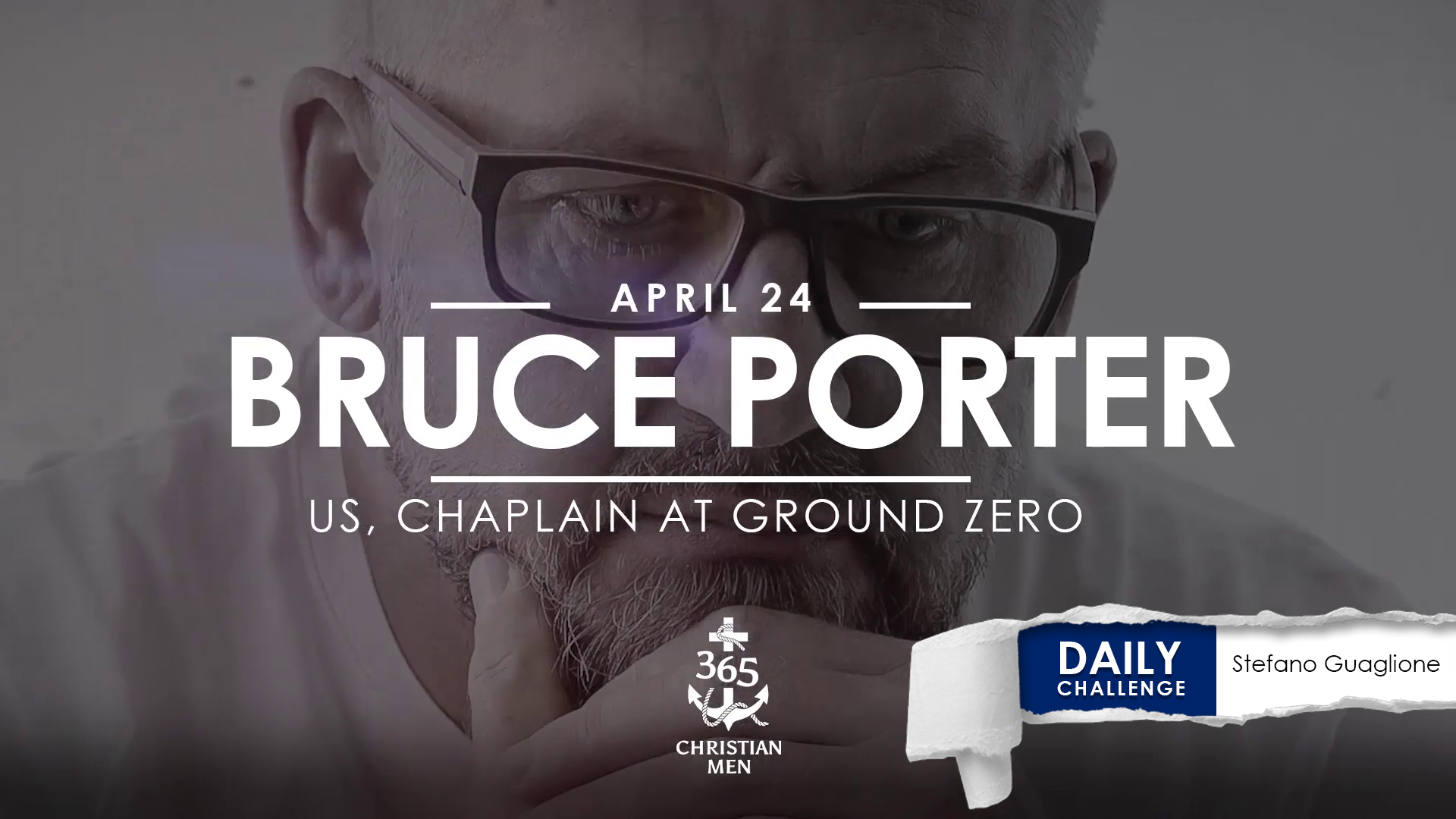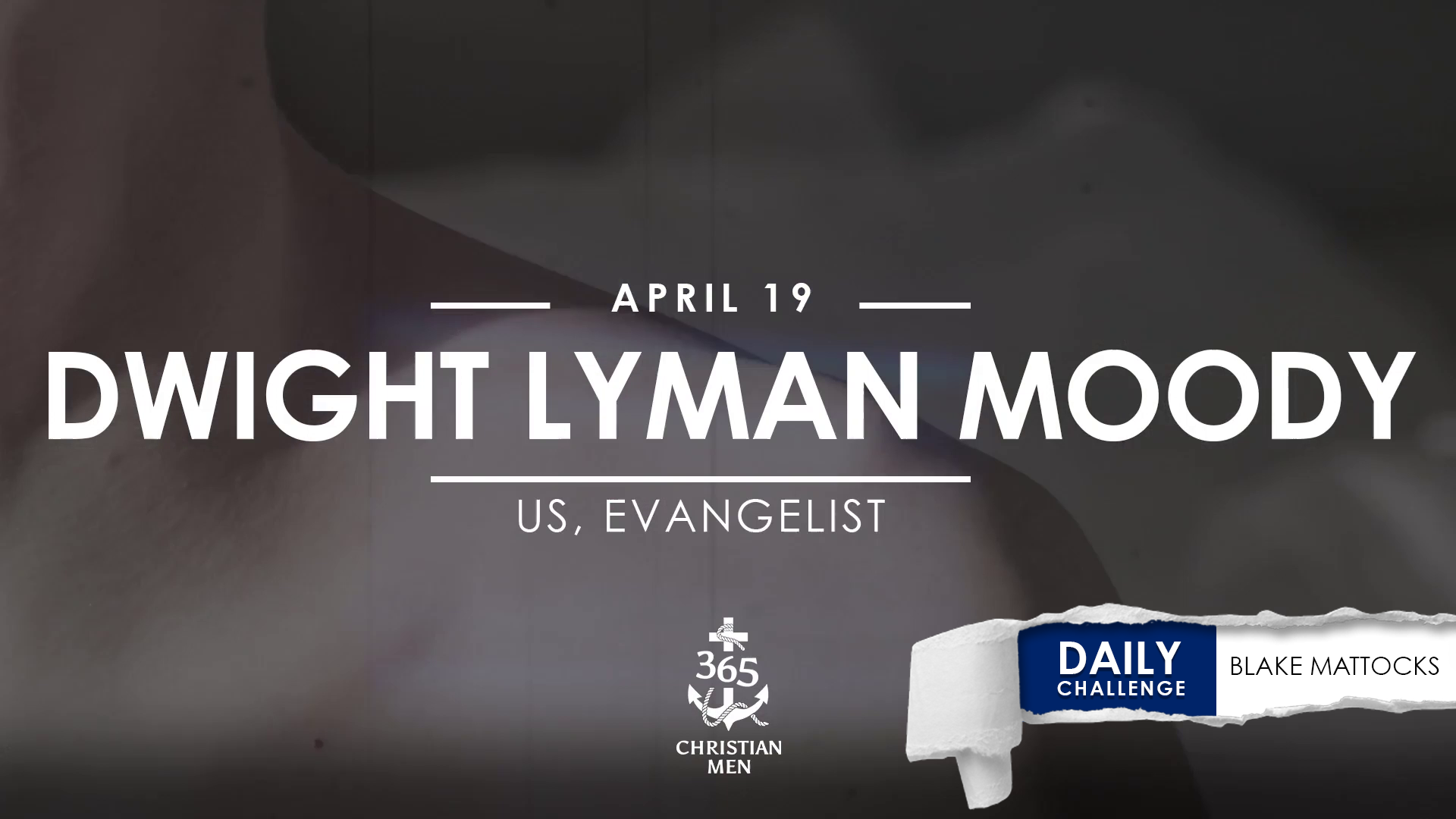April 28. Christmas Evans. It was 1766 in Wales. Evans got his first name—you guessed it—because he was born Christmas day. And—once he was old enough to help on a farm—he probably didn’t get teased about his name, since it’s said he stood seven feet tall. He taught himself to read Welsh and English. With the help of a tutor, he mastered Latin. Finally, he tackled Hebrew and Greek. And he preached throughout Wales.
One particular Sunday afternoon, when he was listening to a powerful preacher, Evans had an “aha moment.” In his mind, he saw that the kind of preaching his people would get the most from was drama—as in comedies and tragedies.
He traveled thousands of miles up and down Wales, uniting the churches and seeing to practical needs of the people, and everywhere he went, he preached with brilliant analogies and emotion that helped the people understand the Scripture.
Evans came to be known as one of the three most powerful preachers in Wales. On this date in 1838, at the age of 72, in his 53rd year of ministry, Evans journeyed into South Wales on his final preaching tour. Today’s story gives us a look into Evan’s character when he was away from the pulpit.
Lying may get you attention, but honesty earns respect.
When Welsh minister Christmas Evans needed his horse sold, he hired a local businessman to sell the animal at the local fair. So the businessman, with horse in tow, went to the fair and hoped to get a good price for it, even though the horse was old and not in the best of shape.
But Evans had confidence the businessman would be able to sell the horse, no matter how poor its condition. There had to be someone out there who would want to take care of a kind and pleasant horse—despite its shortcomings.
But after the businessman had been gone a while, Evans decided to go one down to the fair himself and check up on how the sale was proceeding. At the fair, Evans quickly found the businessman, and at that moment he was in the middle of haggling with an interested customer.
Eager to meet the interested customer, Evans joined the businessman and his prospect.
“Is this your horse, Mr. Evans?” the customer asked.
“Certainly, it is!” Evans answered.
“What is his age, sir?”
“Twenty-three years,” he said.
The customer’s eyes widened, and he quickly turned to the businessman. The neighborhood of his eyes and brows looked as if a storm had just rolled in. “But this man tells me he is only fifteen.”
Evans looked at the businessman, who gulped noticeably. “He is certainly twenty-three,” Evans said.
Sweat appeared along the businessman’s hairline and trickled toward one ear.
Evans said, “He has been with me these twenty years, and he was three years old when I bought him.”
The customer nodded. “Is he safe-footed?”
“Well, he is very far from that.” Evans shrugged. “Indeed, that is the reason why I want to part with him.”
The businessman’s eyes widened, and he shot Evans a nasty glare. “Please go into the house, Mr. Evans, and stop there.” The businessman’s voice was low. “I never shall dispose of the horse while you are present.”
But Evans wouldn’t be deterred. Didn’t the businessman know Christmas was a man of God? What kind of Christian man would he be if he were dishonest in his business dealings? Surely the customer would have to know what kind of horse he would be getting. Evans continued to answer the customer’s questions too honestly for the businessman’s comfort.
Evans and the customer continued to talk, and the businessman continued to shake his head and mutter.
And the customer bought the horse at a price that allowed Evans and the business to make a profit and to make the afternoon’s work worthwhile. The customer had been so honored by Evans’s honesty, that he couldn’t help but honor him back.
“Do not lie to each other, since you have taken off your old self with its practices,” (Colossians 3: 9, NIV).
When have you felt rewarded, either internally or externally, because you chose to be honest? Lying may get you attention, but honesty earns respect.
Vaughn, John. Life Stories of Remarkable Preachers. London: James B. Knapp; Passmore & Alabaster, 1892. Excerpted in “Christmas Evans: The One Eyed Preacher of Wales.” Wholesome Words: Christian Biographies. Wholesomewords.org. Accessed August 4, 2020. https://www.wholesomewords.org/biography/bevans3.html
Phillips, David. Memoir of the Life, Labors, and Extensive Usefulness of the Rev. Christmas Evans; A Distinguished Minister of the Baptist Denomination in Wales. Extracted from the Welsh Memoir. New York: M.W. Dodd, Brick Church Chapel, 1843. Internet Archive. Web. 11 Mar. 2019.
Hood, Edwin Paxton. Christmas Evans, the Preacher of Wild Wales: His Country, His Times, and His Contemporaries. London: Hodder and Stoughton, 1881. Internet Archive. Web. 11 Mar. 2019.
Photo: https://commons.wikimedia.org/wiki/File:20William_Roos_-_Christmas_Evans_(1835).20jpgAccessed March 11, 2019.
Story read by Peter R Warren, https://www.peterwarrenministries.com/
Story written by Toni M Babcock https://www.facebook.com/toni.babcock.1














